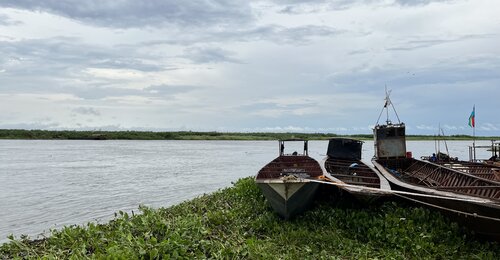South Sudan
Since the onset of the civil war in 2013, South Sudan has experienced widespread conflict-related sexual violence. Rape, sexual slavery and other forms of conflict-related sexual violence have been used during the war in all ten states and three administrative areas, despite a revitalised peace agreement signed in 2018 according to a meeting with UNMISS in 2024. Dating back to the civil war between Sudan and South Sudan in the 1980s, the use of sexual violence has left a legacy of widespread trauma and deep distrust.
While no official survivors’ register exists, thousands of people are estimated to have been affected by sexual violence since 2013, including displaced women and children. None have received reparations. Survivors in South Sudan are heavily stigmatised and are vulnerable to further abuse, forced marriage, and have faced reprisal for attempting to seek justice. Victim-blaming and negative public perceptions of survivors, a lack of security on the roads and limited transport services prevent some from accessing medical and psychological care. Moreover, these services are often unavailable in remote areas.
When I became pregnant, I feared going to the health services due to fear of blaming by the community. They will say 'She asked for it'.
In July 2024, we partnered with the Active Youth Agency (AYA), Steward Women (STW), the Centre for Inclusive Governance, Peace & Justice (CIGPJ) and Right for Peace (RfP) to launch an interim reparative measures project for 400 survivors of conflict-related sexual violence in Mundri West and Bor counties.
Based on what survivors co-create, the project will deliver a range of financial measures, including education for them or their children, livelihood projects supported by vocational training, psychosocial and medical care, and collective interim reparative measures.

Transitional Justice; gaps and opportunities
In 2024, President Salva Kiir ratified two transitional justice laws establishing the Commission for Truth, Reconciliation, and Healing and the Compensation and Reparation Authority, which present important steps in advancing transitional justice and the recognition of survivors’ rights. However, much work remains to be done. The laws do not guarantee any individual financial or material compensation for survivors, make no mention of children affected by the crimes, and do not specifically define conflict-related sexual violence. The mobilisation of survivors has proven successful in moving the process forward, but this momentum needs to be sustained.
With GSF support, survivors and civil society in South Sudan will seek to ensure that these two important transitional justice mechanisms are implemented in a way that addresses these critical gaps.
Justice without reparation is not justice, we need a justice that provides to all of the people.
More from South Sudan




